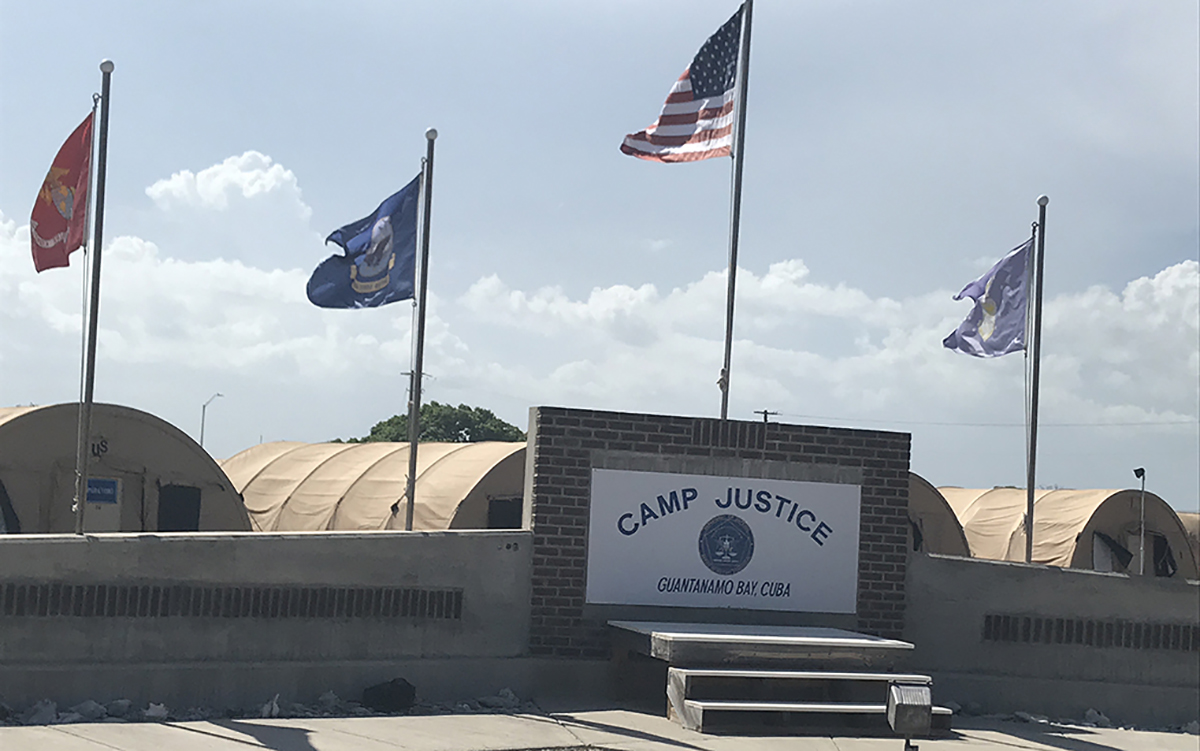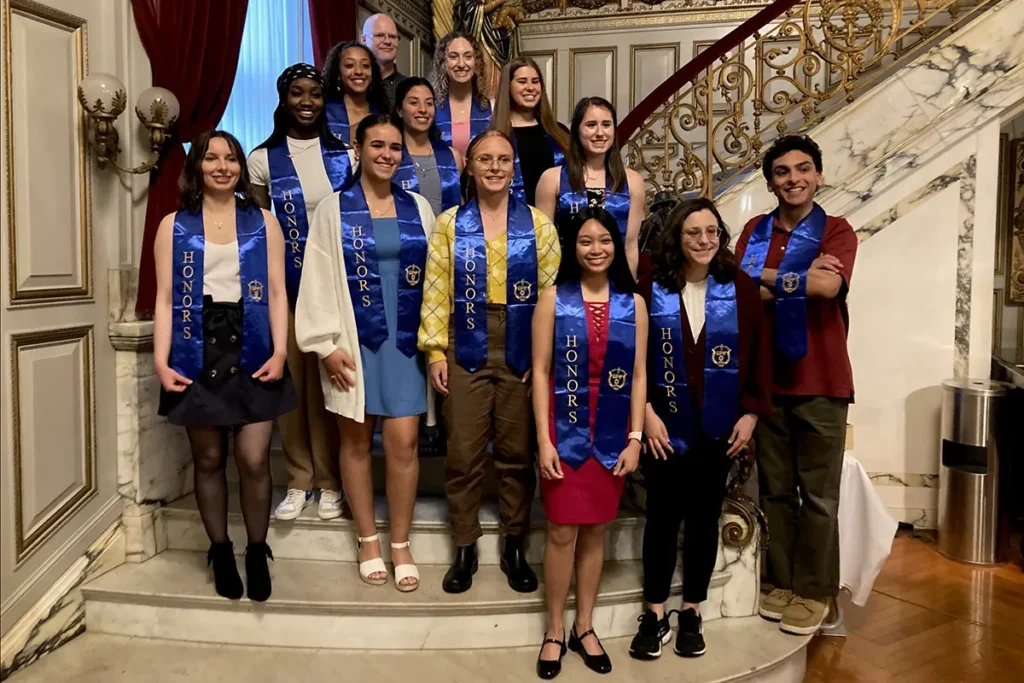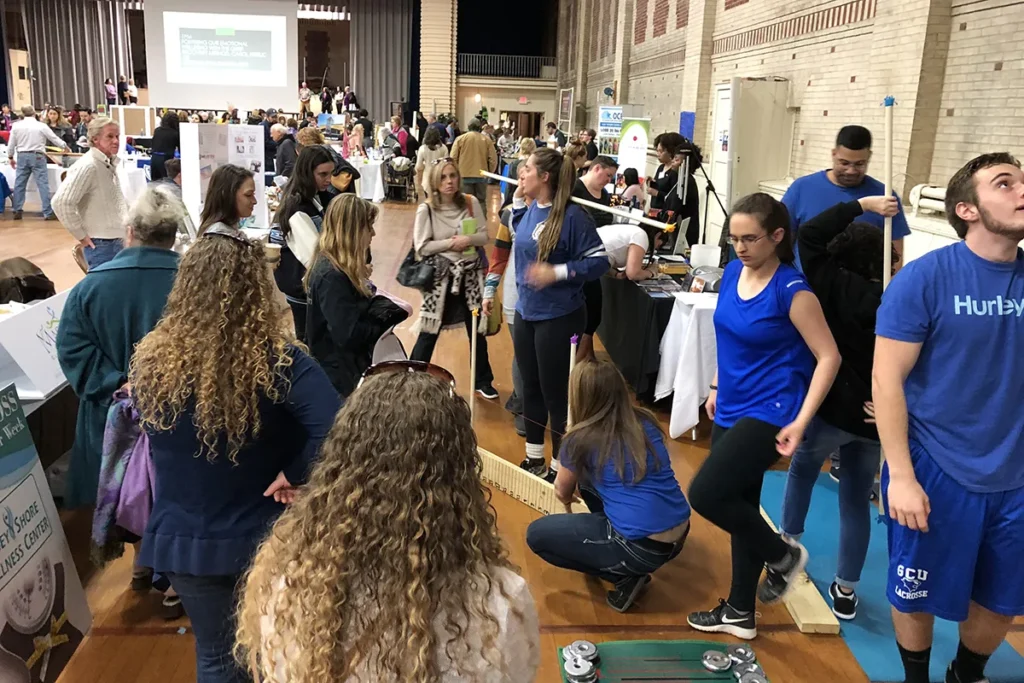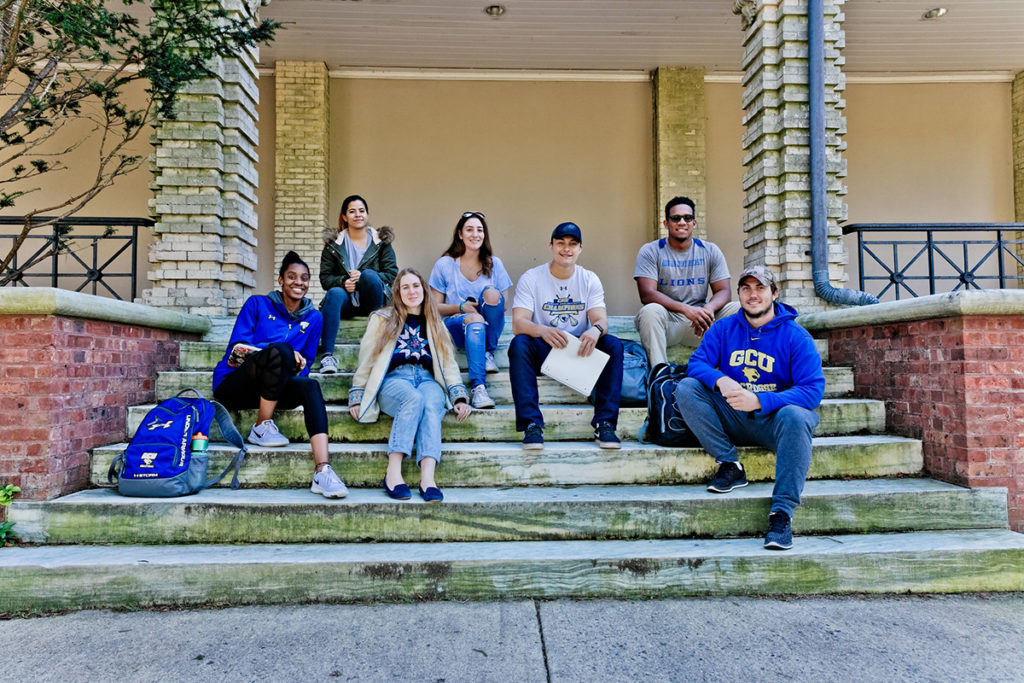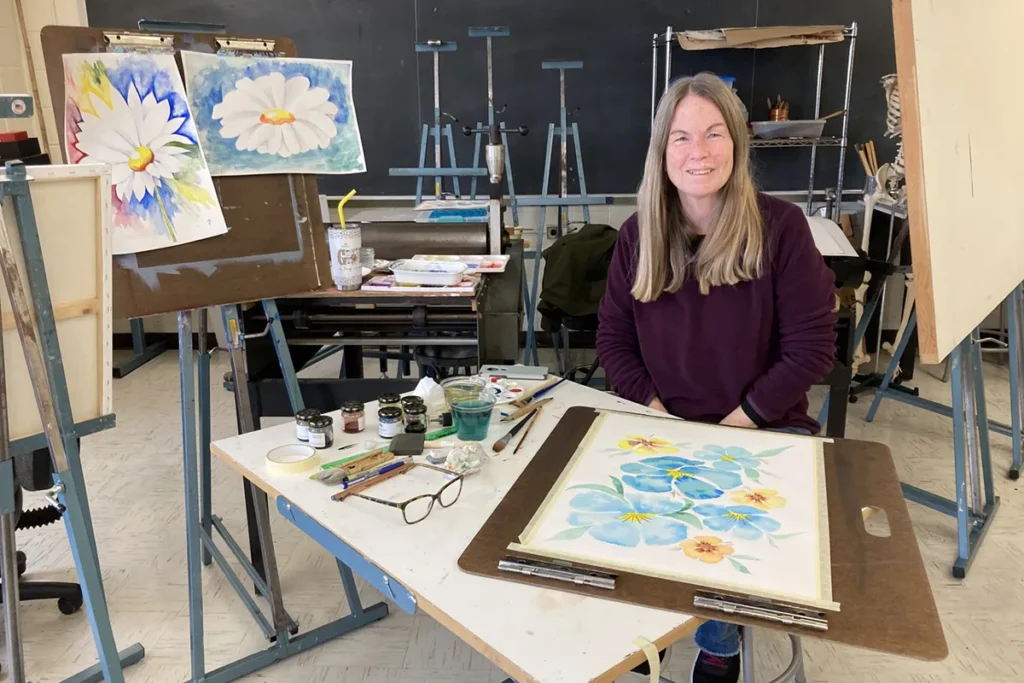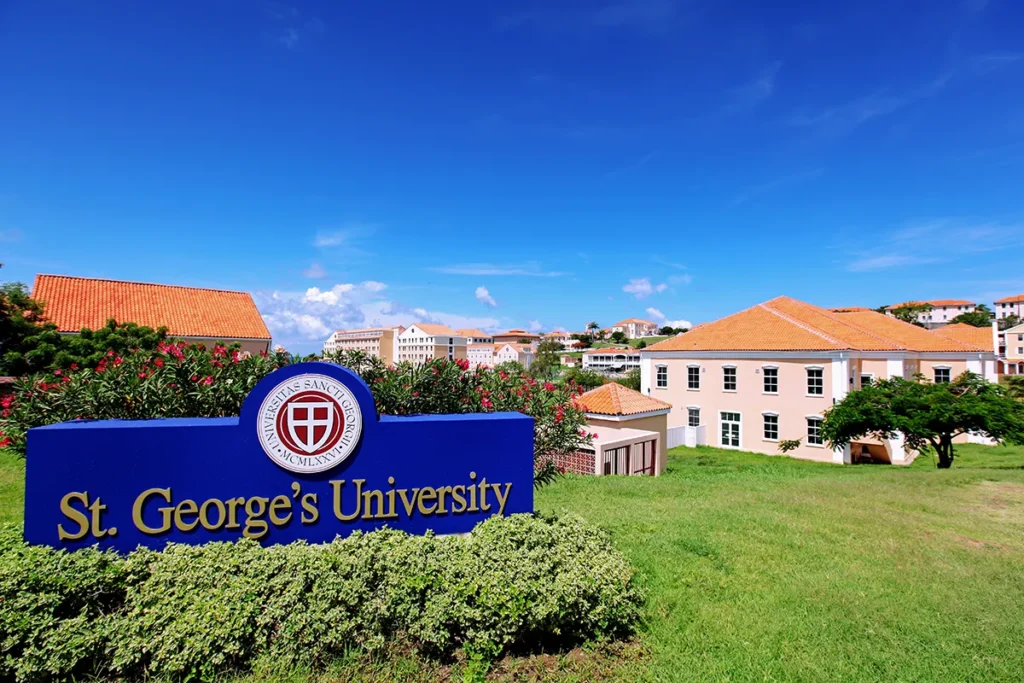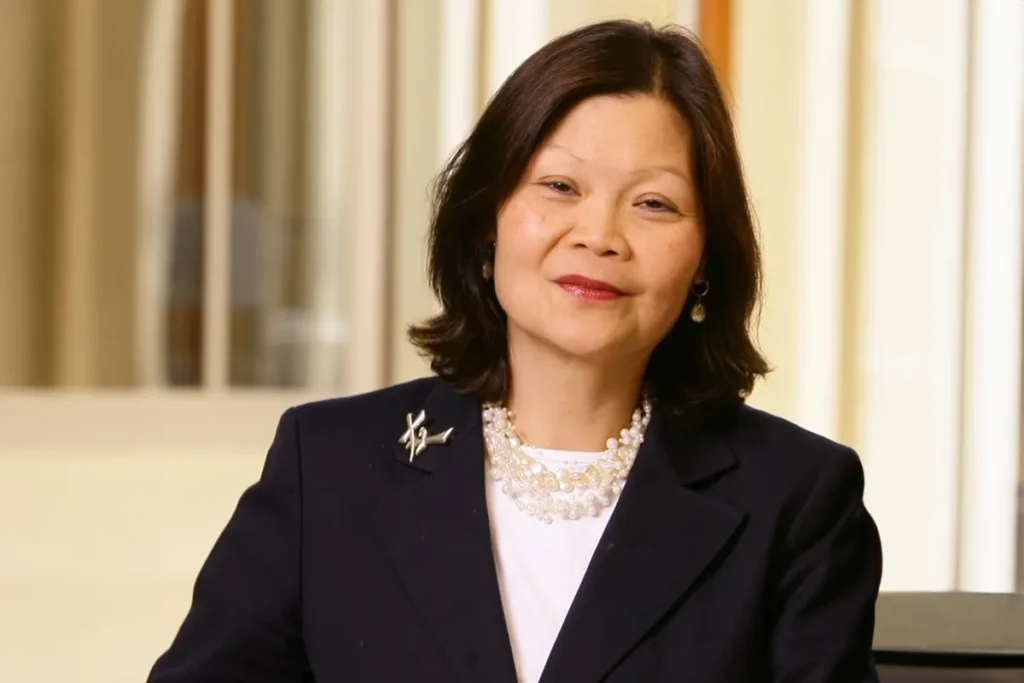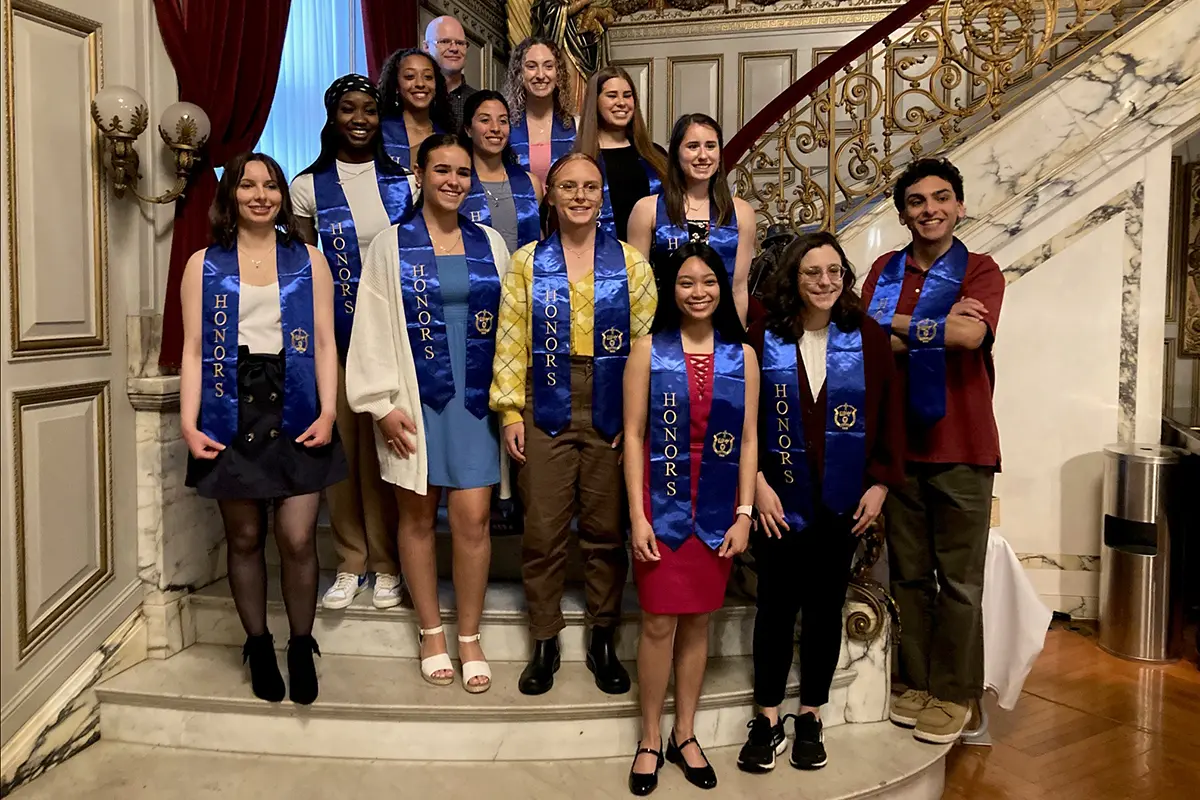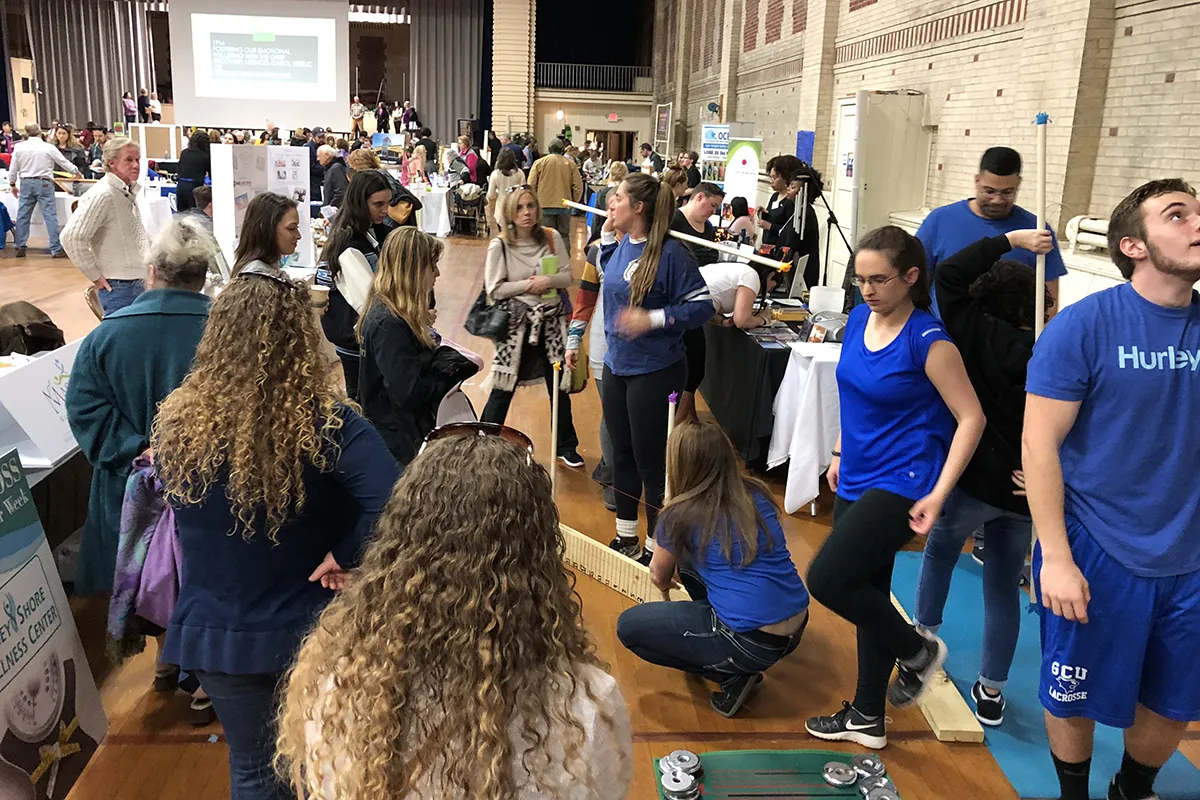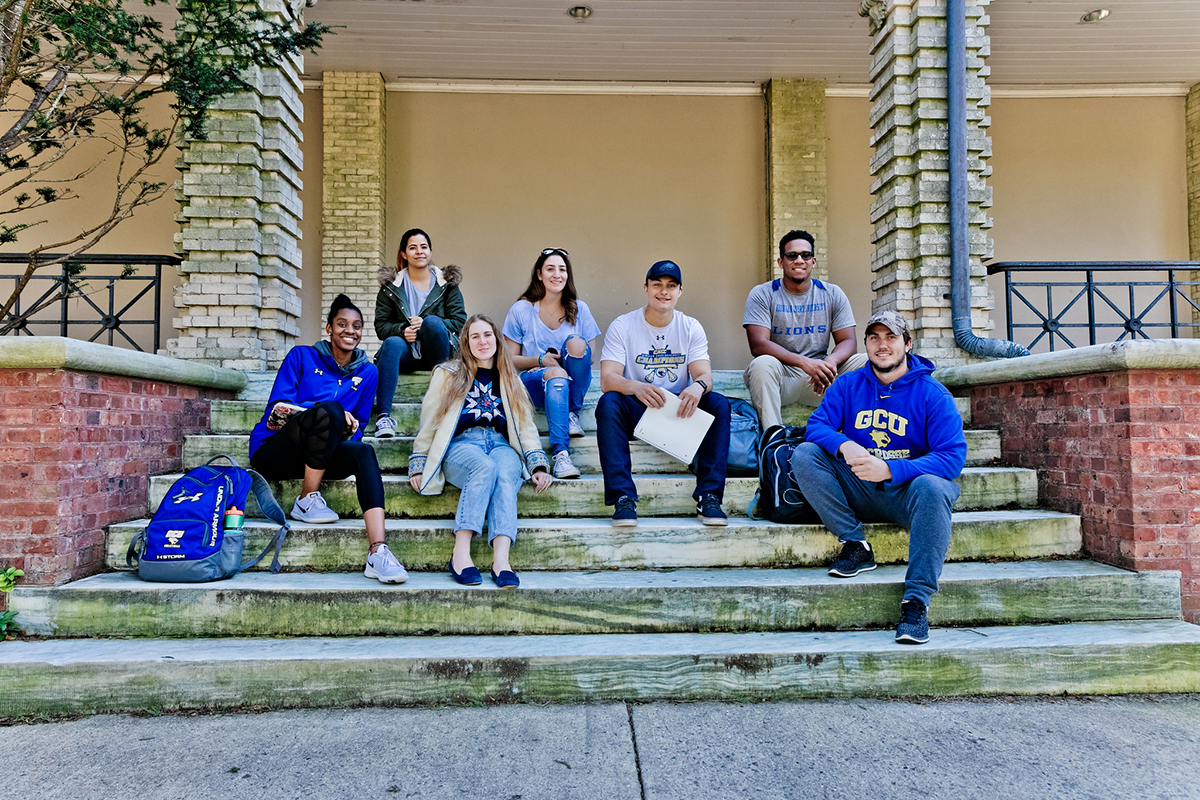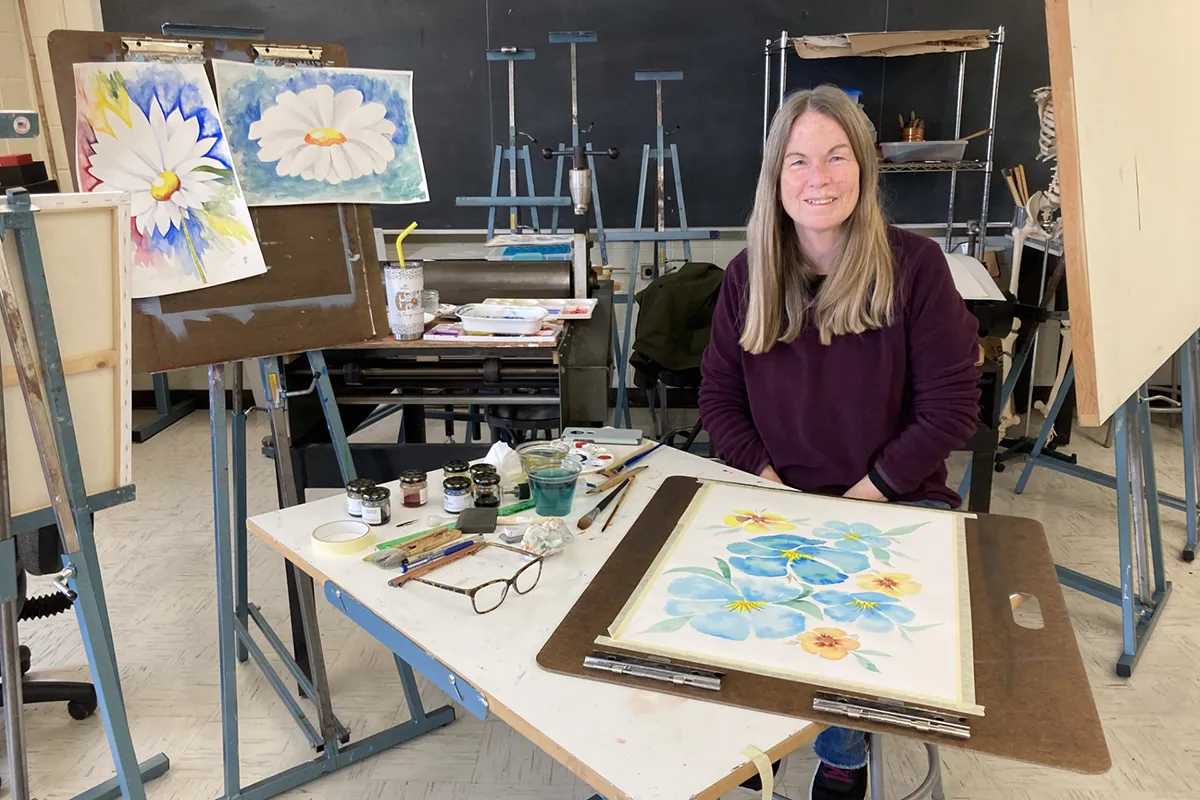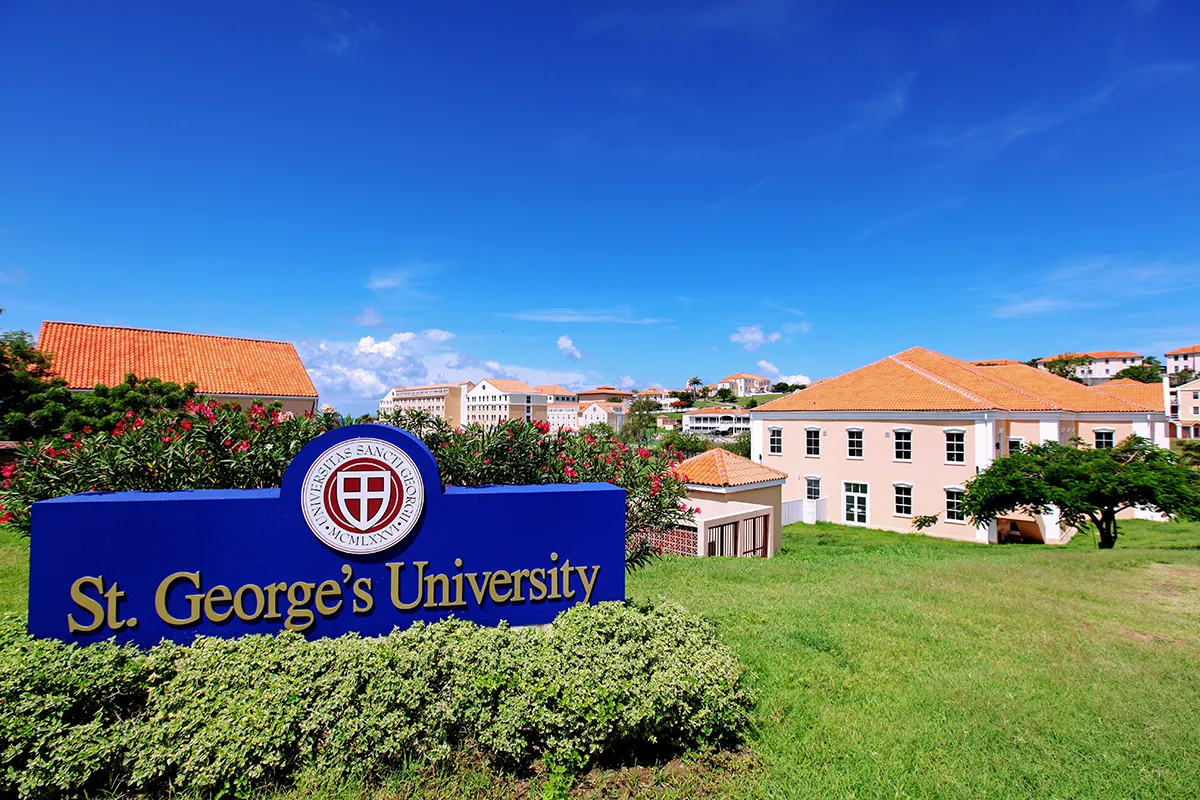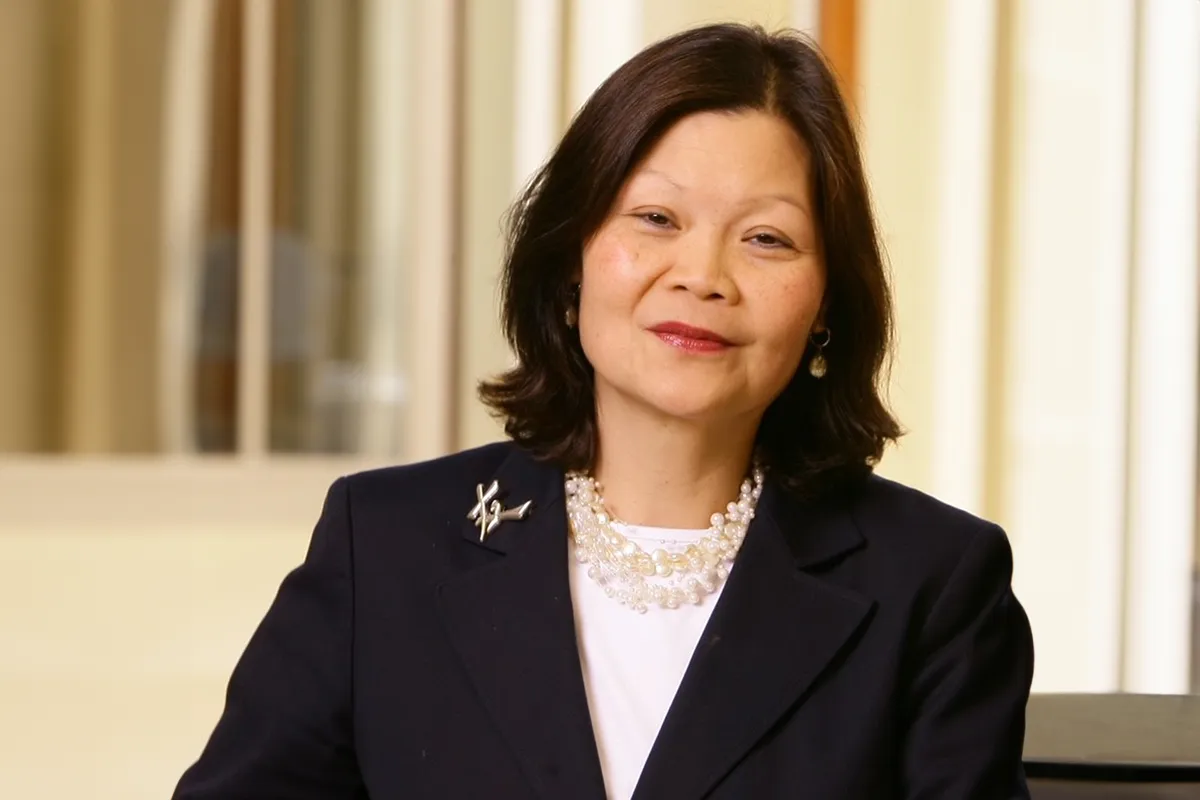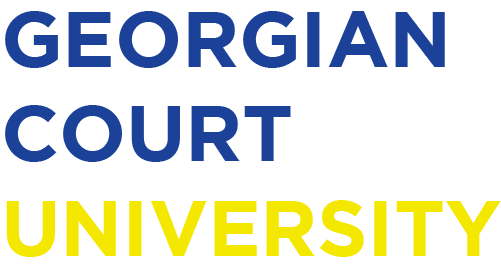While students often spend time between semesters taking a much needed and well-deserved break from their studies or traveling with families and friends, Georgian Court University faculty often devote that time reading, editing, presenting papers, and conducting research.
“Our faculty maintain a robust research agenda,” said Janice Warner, Ph.D., GCU’s interim provost. “Many of our professors spend a significant amount of their time outside of the classroom traveling to conferences, writing, and preparing for the upcoming academic semester.”
Last summer, for example, three professors’ research projects took them far beyond Georgian Court. One was a research fellow at a university campus in the Midwest; another traveled to a small Caribbean island as an NGO observer; and one other went to Dublin, Ireland, for an international conference.
Exploring Afromexican History at the University of Michigan’s Clements Library
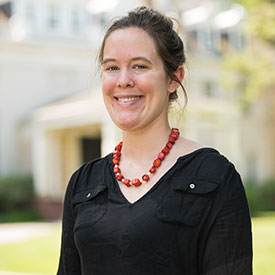
Norah Gharala, Ph.D., assistant professor of world history, received a Jacob M. Price Visiting Research Fellowship from the William L. Clements Library at the University of Michigan. Dr. Gharala spent a week last summer in Ann Arbor, combing through volumes of books and manuscripts for her current research project, Heirs to Their Houses: Families of Africans, Europeans, and Indians in Early North America,1640–1820.
“My research is a comparative study about families that crossed the boundaries of race and caste in Atlantic North America. I am using archival records to examine property ownership and residence in Afro-indigenous families in colonial Mexico. It focuses on race, belonging, gender, and family,” says Dr. Gharala.
The Clements Library is well known as an early American history research library that draws curators and researchers alike. Its holdings focus on the discovery, exploration, and colonization of America by Europeans from the 15th through the 17th centuries, and late 18th-century colonial and revolutionary America.
“It was exciting to work with people who dedicate their lives to this history and can make suggestions about what you should be reviewing. I was pleasantly surprised when the director of manuscripts directed me to a volume on colonial Mexico that was directly related to my project,” says Dr. Gharala. “Clements is a global library that looks at the Americas from a global context.”
The North Carolina native, who grew up watching her professor father research similar topics, recently served as a panelist at the American Historical Association 133rd Annual Meeting in Chicago. Her book, Taxing Blackness: Free Afromexican Tribute in Bourbon New Spain (University of Alabama Press) is set for publication in February 2019.
GCU’s NGO Observer at Guantanamo Bay Military Trials
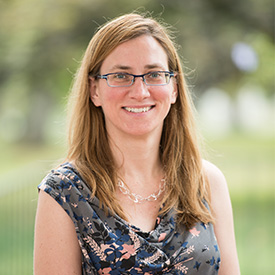
Marny Requa, J.D., a GCU associate professor of criminal Justice and director of the university’s graduate criminal justice and human rights program, traveled to Camp Justice at the U.S. Naval Station at Guantanamo Bay, Cuba, as a non-governmental organization (NGO) observer. She was there on behalf of the New York City Bar Association. The role of an observer is to attend, monitor, and report on the U.S. Military Commission hearings for “War on Terror” detainees still being held at the detention center.
“A lot of people have forgotten about Guantanamo detainees. The U.S. military continues to conduct legal proceedings with little-to-no attention from the American public,” said Professor Requa.
Currently, 40 “War on Terrorism” detainees are held at Guantanamo Bay. There are three active cases among the nine detainees who have been charged, she explained, and 26 detainees are so-called “forever prisoners” who have never been charged. In addition, five others have been approved for release by previous administrations but are still being held.
As an NGO observer, Professor Requa attended a military commission hearing for a detainee who was taken into custody in 2003 and has been held at Guantanamo since 2006. He has since pled guilty and is a cooperating witness scheduled for sentencing.
There is a lot of mystery surrounding the military commissions at Guantanamo Bay to try foreign terrorism suspects in proceedings that lack the due process protections of U.S. federal courts. A part of due process is having access, transparency, and equal protections under U.S. laws. Guantanamo Bay is simultaneously within and outside of the U.S. legal systems, creating what she calls as “selective constitutionalism” within the U.S. Constitution. The military commission was created specifically for detainees at Guantanamo.
According to Professor Requa, one reason the legal process for the Guantanamo Bay detainees takes longer is because judges, prosecutors, and defense attorneys are not based there and are flown in on military or charter planes with other military personnel each time there is activity or a hearing in a case. Timing is difficult too: because judges have other military trials and responsibilities, by the time a hearing is scheduled, they have often moved on to other duties. This can cause repeated delays for a detainee’s case.
“This is the first time the process has ever been used, and it is cumbersome. Hundreds of people have been processed for terrorism offenses through the U.S. federal courts since the detention center opened,” says Professor Requa. “The federal system is capable of handling these cases, yet the U.S. is treating these people differently.”
The plight of detainees being held at Guantanamo Bay would all but vanish from the public’s view if not for legal observers from several approved NGOs. The New York City Bar Association regularly sends representatives to Guantanamo Bay, and the professor hopes to go again in the near future.
Connecting Social Work Practice and Mercy Core Values
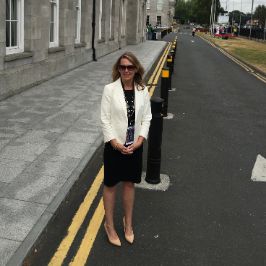
Megan Sherman, Ph.D., LCSW, GCU assistant professor and chair of the Department of Social Work and Gerontology, traveled over 3,000 miles from GCU to the “Emerald Isle” of Ireland to attend the 2018 Joint World Conference on Social Work, Education, and Social Development.
Dr. Sherman, who has a strong research interest in exploring the role spirituality has in social work education and practice, discussed her research with other scholars during a poster presentation titled, “Mental Health and Student Success: The Role of Relational and Spiritual Connection.”
“I feel privileged to have had an opportunity to network with social workers from around the globe,” says Dr. Sherman. “I hope future scholarship collaborations come from the experience.”
The conference theme was “Environmental and Community Sustainability: Human Solutions in Evolving Societies,” and the gathering brought together over 2,000 practitioners, academics, educators, policy makers, and users of services from around the world. They discussed key issues that affect their lives and those of individuals, families, and communities.
As a licensed clinical social worker, Dr. Sherman gravitates toward qualitative research because of the rich personal connection that comes from hearing the unique narratives of individuals and communities. She focuses on the spiritual, relational, and intra-personal variables that contribute to achievement and an individual’s overall feelings of academic or professional success and personal fulfillment.
Currently, she is working on several research projects with GCU students, including an investigation of social work students’ perceptions of personal growth and professional competency before and after their final field experience. She is also exploring the male experience of substance abuse recovery in a halfway home.
During her free time in Dublin, Dr. Sherman visited the House of Mercy on Baggot Street and the International Center of the Sisters of Mercy. The visit has inspired her to explore the lives of Mercy foundress Catherine McAuley and social work pioneer Jane Addams. Recently, she received a mini-grant from the GCU Office of the Provost to complete this research.
“The visit to Baggot Street reinforced for me how closely connected the mission of the Sisters of Mercy is with the mission of the social work profession,” she says.
Story contributed by Sherri Hicks.

